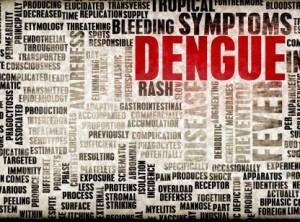Don’t Miss Out on the Latest Updates.
Subscribe to Our Newsletter Today!
Delhi dengue fever update: Total toll rises to 4,618

 The number of dengue cases in Delhi has risen to 4,618 from 4,402 on Oct 28, a municipal health official said on Monday. The vector borne disease has claimed six lives but no fatality has been reported in the past week.
The number of dengue cases in Delhi has risen to 4,618 from 4,402 on Oct 28, a municipal health official said on Monday. The vector borne disease has claimed six lives but no fatality has been reported in the past week.
An additional 53 cases have been reported from the rest of the National Capital Region. In Delhi, most dengue cases have occurred in the north corporation zone (1,958) followed by the south zone (1,373) and east zone (1,163).
What is dengue?
It is a tropical disease, usually transmitted by mosquitoes and the common symptoms include fever, headache, muscle and joint pains and skin rash. There is no vaccine for dengue and the only way to reduce infections is to improve hygiene levels so as to prevent mosquito-bites and prevent mosquitoes from breeding. It's particularly difficult to create a vaccine because it's caused by different viruses and there are no animal models available for testing. The disease kills over five thousand Indians every year and is a seasonal threat, particularly during the monsoon seasons.
Also Read
- Delhi On Red Alert As Temperature Drops To 3°C: Follow These 7 Tips To Keep Your Body Warm Naturally
- Delhi Weather Updates: Cold Waves Continues; 7 Essential Tips To Keep Your Heart Healthy In Winter And Prevent Heart Attack
- Delhi Weather Update: Temperature Dips To 7.4°C; Cold Days, Fog To Grip North India For Next 6 Days
What are the symptoms of dengue?
Characterized by severe flu-like symptoms, dengue affects infants, children and adults alike and could be fatal. The clinical manifestations of dengue vary with the age of the patient. A person suffering from high fever in the range of 40 C/ 104 F, accompanied by any two of the following symptoms could be suffering from dengue:
- Severe headache
- Pain behind the eyes
- Nausea, Vomiting
- Swollen glands
- Muscle and joint pains
- Rash
Symptoms usually last for 2-7 days. Dengue could progress to severe dengue, a potentially fatal complication, causing leaking of plasma, fluid accumulation, respiratory distress, severe bleeding and organ impairment.
The warning signs to look out for occur 3-7 days after the first symptoms along with a decrease in temperature are:
- Severe abdominal pain
- Persistent vomiting
- Rapid breathing
- Bleeding gums
- Blood in vomit
- Fatigue, restlessness
The next 24-48 hours of the critical stage can be lethal; proper medical care is needed to avoid complications and risk of death.
Prevention
Dengue is a communicable diseases spread by mosquitoes from one human to another. So, the only way it can really be prevented is by avoiding mosquito bites. One can make sure all egg-laying habitats of mosquitoes like open and stagnant water source are cleaned up. If there are any open water sources you cannot eliminate, cover them and apply appropriate insecticides. Use protection such as window screens, long-sleeved clothes, and insecticide treated materials, coils and vaporizers.
Read more about dengue its symptoms, diagnosis and treatment.
With inputs from IANS


